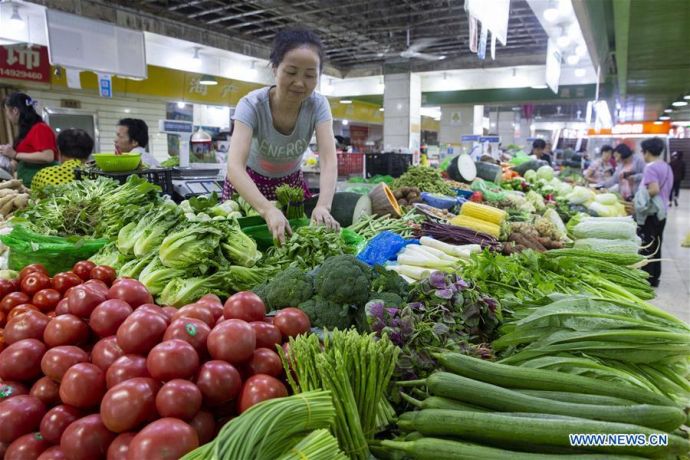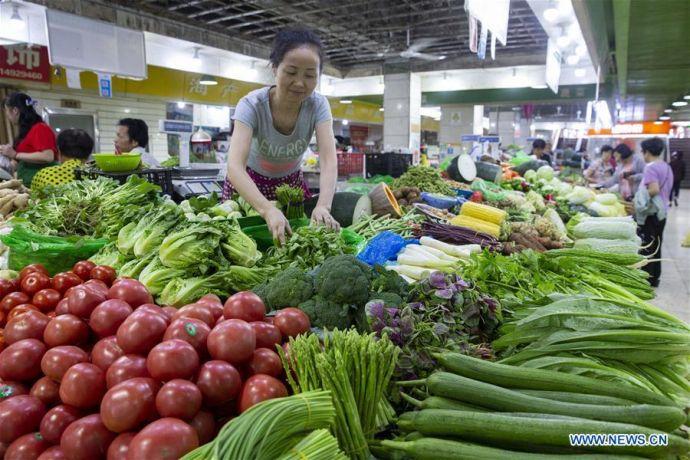
BEIJING, Sept. 11 (Xinhua) -- China's consumer price inflation had increased at a faster pace than the previous month for three months in a row by August, but the overall inflation risk is still muted.
The consumer price index (CPI), a main gauge of inflation, rose 2.3 percent year on year in August, compared with 2.1 percent for July, 1.9 percent for June, and 1.8 percent for both April and May, the National Bureau of Statistics (NBS) said on its website Monday.
The August figure was the highest since February 2018, when the CPI was up 2.9 percent year on year, driven mainly by Spring Festival holiday factors.
The pickup was mainly attributed to a fast increase in non-food prices, which rose 2.5 percent year on year and contributed to a 1.98-percentage-point rise of the overall CPI increase.
Prices for medical products and services rose 4.3 percent year on year, transport and communications prices gained 2.7 percent, while educational, cultural and entertainment prices rose 2.6 percent, the bureau said.
Prices for dwelling-related expenses, including rents and utilities, rose 2.5 percent year on year.
Food prices rose 1.7 percent year on year, contributing to a 0.33-percentage-point increase in the overall CPI increase.
The prices for eggs, fruits and vegetables went up 10.3 percent, 5.5 percent, and 4.3 percent, together resulting in CPI rise of about 0.25 percentage points.
On a month-on-month basis, the CPI increased 0.7 percent from July, as food prices rose 2.4 percent from July.
NBS statistician Sheng Guoqing said vegetable prices surged 9 percent from the previous month due to high temperatures and rainy weather, especially the heavy rain in some northeastern and eastern provinces.
The fresh vegetable prices surged more than 20 percent in Liaoning, Jilin and Shandong provinces, Sheng said.
Pork prices rose 6.5 percent month on month, as continuous hot summer days this year slowed pig growth and the African swine fever outbreak in some areas of China exacerbated the pork supply, Sheng added.
"We think markets need to keep an eye on the development of African swine fever, but otherwise the inflation worries are overdone," Asian investment bank Nomura said in a research note, shrugging off worries about rising inflation risk.
As of Sept. 1, China had culled more than 38,000 pigs nationwide due to the African swine fever.
"Temporary rise of food prices and rents due to some supply and demand shocks could be short-lived, China's overall CPI inflation risk is still muted and could decline back to around 2.1 percent in September," the note reads.
China is aiming to keep annual CPI growth at around 3 percent this year, the same as the 2017 target.
The average year-on-year CPI growth for the first eight months stood at 2 percent, unchanged from the first seven months, according to the NBS.
The producer price index, which measures costs for goods at the factory gate, rose 4.1 percent year on year in August, slowing from the 4.6-percent increase in July.




 A single purchase
A single purchase









